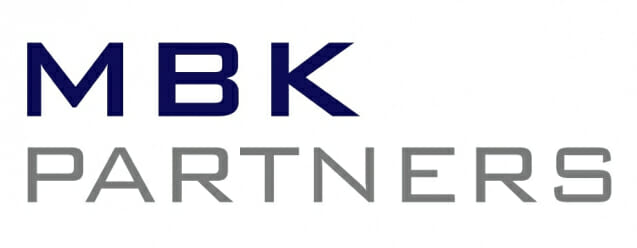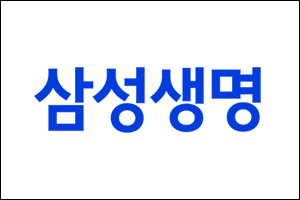According to industry sources on the 6th, MBK’s ongoing sale of Homeplus’s supermarket chain, Homeplus Express, has been halted. While the sale of Homeplus Express was considered a key step in MBK’s exit from Homeplus, the corporate rehabilitation proceedings have resulted in a temporary asset freeze, suspending the separation and sale of Homeplus Express. Previously, a domestic retail company had begun due diligence for its acquisition.
MBK and Homeplus appointed Morgan Stanley as their sale advisor in June last year and initiated the sale of Homeplus Express, a business division within Homeplus. Homeplus Express was considered attractive due to its extensive network of directly managed stores in Seoul and the capital region, as well as its standout immediate delivery service. Reports indicated that several domestic retailers and China's AliExpress had shown interest.
Homeplus Express recorded KRW 1.2 trillion in revenue and approximately KRW 100 billion in EBITDA in 2023. If the sale had gone through, it was projected to inject up to KRW 1 trillion in cash. However, the current situation has not only halted the separation of the supermarket chain but also cast uncertainty over the entire Homeplus sale.
MBK’s management capabilities have come under scrutiny following Homeplus’s corporate rehabilitation. Since MBK’s acquisition, Homeplus has suffered declining sales, deteriorating profitability, and a reduction in store numbers. Instead of investing, MBK focused on selling assets to repay acquisition debt, prioritizing divestment over sustainable management. As a result, MBK has tarnished its reputation and credibility as the top private equity fund (PEF) in South Korea.
Industry experts believe the crisis will also impact MBK’s efforts to sell Lotte Card and its involvement in the management dispute at Korea Zinc.

Lotte Card, another MBK portfolio company, has recently faced controversy. MBK has been attempting to sell Lotte Card, which it acquired from Lotte Group in 2019. However, a default occurred on KRW 78.6 billion in factoring receivables, resulting in a loss of KRW 38.1 billion. Factoring is a financial service in which a company sells its accounts receivable to a financial institution to secure funds. While this incident is not expected to significantly affect Lotte Card’s financial standing or credit rating, it could create concerns for potential buyers.
A similar situation is unfolding at Korea Zinc. Korea Zinc Chairman Choi Yoon-bum and his management team have consistently argued that "allowing a PEF to acquire control for short-term gains would have a negative impact on Korea Zinc."
Homeplus is currently scrambling to mitigate the fallout from the crisis. Amid concerns over potential payment delays, some business partners — including Shilla Duty Free, CJ Foodville, Everland, and CGV — have suspended acceptance of Homeplus gift certificates, raising fears of a second "TMON incident."
Regarding this, Homeplus stated, "There has been some confusion regarding the use of gift certificates, but they remain valid and can be used normally at Homeplus stores." The company added, "Some affiliates have refused to accept the gift certificates despite them being fully repayable trade receivables. This appears to be an overreaction driven by concerns linked to last year’s e-commerce industry non-settlement crisis."
Homeplus plans to engage with business partners promptly to resolve the issue.
A Homeplus representative stated, "As of the 6th, our available cash balance stands at KRW 309 billion, and we expect a net cash inflow of approximately KRW 300 billion from business operations throughout March, bringing our total available funds to over KRW 600 billion. There is no issue in meeting our obligations to general trade creditors."
"Starting today, we have resumed payments for general commerce trade creditors and plan to fully repay them in sequence," the representative added.
Park seulgi (seulgi@fntimes.com)



























![기관 '알테오젠'·외인 '에코프로'·개인 '리노공업' 1위 [주간 코스닥 순매수- 2026년 2월19일~2월20일]](https://cfnimage.commutil.kr/phpwas/restmb_setimgmake.php?pp=006&w=69&h=45&m=5&simg=2026022023314903795179ad4390711823566145.jpg&nmt=18)
![[주간 보험 이슈] 보험사에도 행동주의 펀드 목소리…얼라인파트너스 DB손보 공개서한·에이플러스에셋 주주제안 外](https://cfnimage.commutil.kr/phpwas/restmb_setimgmake.php?pp=006&w=69&h=45&m=5&simg=20250915111248076232a735e27af12411124362.jpg&nmt=18)
![기관 '삼성전자'·외인 'SK하이닉스'·개인 '삼성전자' 1위 [주간 코스피 순매수- 2026년 2월19일~2월20일]](https://cfnimage.commutil.kr/phpwas/restmb_setimgmake.php?pp=006&w=69&h=45&m=5&simg=2026022023232506292179ad4390711823566145.jpg&nmt=18)
![12개월 최고 연 4.95%, 제주은행 'MZ 플랜적금' [이주의 은행 적금금리-2월 4주]](https://cfnimage.commutil.kr/phpwas/restmb_setimgmake.php?pp=006&w=69&h=45&m=5&simg=20260220164037004135e6e69892f2114827133.jpg&nmt=18)
![12개월 최고 연 3.25%…SC제일은행 'e-그린세이브예금' [이주의 은행 예금금리-2월 4주]](https://cfnimage.commutil.kr/phpwas/restmb_setimgmake.php?pp=006&w=69&h=45&m=5&simg=20260220161811090515e6e69892f2114827133.jpg&nmt=18)
![24개월 최고 연 5.15%, 제주은행 'MZ 플랜적금' [이주의 은행 적금금리-2월 4주]](https://cfnimage.commutil.kr/phpwas/restmb_setimgmake.php?pp=006&w=69&h=45&m=5&simg=20260220164219002235e6e69892f2114827133.jpg&nmt=18)
![24개월 최고 연 3.10%…부산은행 '더 특판 정기예금' [이주의 은행 예금금리-2월 4주]](https://cfnimage.commutil.kr/phpwas/restmb_setimgmake.php?pp=006&w=69&h=45&m=5&simg=20260220162010050335e6e69892f2114827133.jpg&nmt=18)
![12개월 최고 연 3.30%…참저축은행 '비대면 회전정기예금' [이주의 저축은행 예금금리-2월 4주]](https://cfnimage.commutil.kr/phpwas/restmb_setimgmake.php?pp=006&w=69&h=45&m=5&simg=20260220180505017526a663fbf34175192139202.jpg&nmt=18)
![12개월 최고 연 5.00%…세람저축은행 '펫밀리 정기적금' [이주의 저축은행 적금금리-2월 4주]](https://cfnimage.commutil.kr/phpwas/restmb_setimgmake.php?pp=006&w=69&h=45&m=5&simg=20260220184140081126a663fbf34175192139202.jpg&nmt=18)
![24개월 최고 연 3.25%…흥국저축은행 '정기예금(강남)' [이주의 저축은행 예금금리-2월 4주]](https://cfnimage.commutil.kr/phpwas/restmb_setimgmake.php?pp=006&w=69&h=45&m=5&simg=20260220183141006236a663fbf34175192139202.jpg&nmt=18)












![[그래픽 뉴스] 워킹맘이 바꾼 금융생활](https://cfnimage.commutil.kr/phpwas/restmb_setimgmake.php?pp=006&w=298&h=298&m=1&simg=202602021638156443de68fcbb3512411124362_0.jpg&nmt=18)
![[그래픽 뉴스] 매파·비둘기부터 올빼미·오리까지, 통화정책 성향 읽는 법](https://cfnimage.commutil.kr/phpwas/restmb_setimgmake.php?pp=006&w=298&h=298&m=1&simg=202601281456119025de68fcbb3512411124362_0.jpg&nmt=18)
![[그래픽 뉴스] 하이퍼 인플레이션, 왜 월급이 종잇조각이 될까?](https://cfnimage.commutil.kr/phpwas/restmb_setimgmake.php?pp=006&w=298&h=298&m=1&simg=202601141153149784de68fcbb3512411124362_0.jpg&nmt=18)
![[그래픽 뉴스] 주식·채권·코인까지 다 오른다, 에브리싱 랠리란 무엇일까?](https://cfnimage.commutil.kr/phpwas/restmb_setimgmake.php?pp=006&w=298&h=298&m=1&simg=202601071630263763de68fcbb3512411124362_0.jpg&nmt=18)
![[그래픽 뉴스] “이거 모르고 지나치면 손해입니다… 2025 연말정산 핵심 정리”](https://cfnimage.commutil.kr/phpwas/restmb_setimgmake.php?pp=006&w=298&h=298&m=1&simg=202601061649137526de68fcbb3512411124362_0.jpg&nmt=18)
![[신간] 고수의 M&A 바이블](https://cfnimage.commutil.kr/phpwas/restmb_setimgmake.php?pp=006&w=81&h=123&m=5&simg=2025091008414900330f8caa4a5ce12411124362.jpg&nmt=18)
![[신간] 리빌딩 코리아 - 피크 코리아 극복을 위한 생산성 주도 성장 전략](https://cfnimage.commutil.kr/phpwas/restmb_setimgmake.php?pp=006&w=81&h=123&m=5&simg=2025032814555807705f8caa4a5ce12411124362.jpg&nmt=18)
![[서평] 추세 매매의 대가들...추세추종 투자전략의 대가 14인 인터뷰](https://cfnimage.commutil.kr/phpwas/restmb_setimgmake.php?pp=006&w=81&h=123&m=5&simg=2023102410444004986c1c16452b0175114235199.jpg&nmt=18)


![[신간] 이게 화낼 일인가?](https://cfnimage.commutil.kr/phpwas/restmb_setimgmake.php?pp=006&w=81&h=123&m=5&simg=2026010610254801367f8caa4a5ce12411124362.jpg&nmt=18)

![[AD] 현대차, 글로벌 안전평가 최고등급 달성 기념 EV 특별 프로모션](https://cfnimage.commutil.kr/phpwas/restmb_setimgmake.php?pp=006&w=89&h=45&m=1&simg=20260106160647050337492587736121125197123.jpg&nmt=18)
![[AD] 현대차 ‘모베드’, CES 2026 로보틱스 부문 최고혁신상 수상](https://cfnimage.commutil.kr/phpwas/restmb_setimgmake.php?pp=006&w=89&h=45&m=1&simg=20260105103413003717492587736121125197123.jpg&nmt=18)
![[AD] 기아 ‘PV5’, 최대 적재중량 1회 충전 693km 주행 기네스 신기록](https://cfnimage.commutil.kr/phpwas/restmb_setimgmake.php?pp=006&w=89&h=45&m=1&simg=20251105115215067287492587736121125197123.jpg&nmt=18)
![[카드뉴스] KT&G, 제조 부문 명장 선발, 기술 리더 중심 본원적 경쟁력 강화](https://cfnimage.commutil.kr/phpwas/restmb_setimgmake.php?pp=006&w=89&h=45&m=1&simg=202509241142445913de68fcbb3512411124362_0.png&nmt=18)
![[AD]‘황금연휴에 즐기세요’ 기아, ‘미리 추석 페스타’ 이벤트 실시](https://cfnimage.commutil.kr/phpwas/restmb_setimgmake.php?pp=006&w=89&h=45&m=1&simg=20250903093618029117492587736121166140186.jpg&nmt=18)



